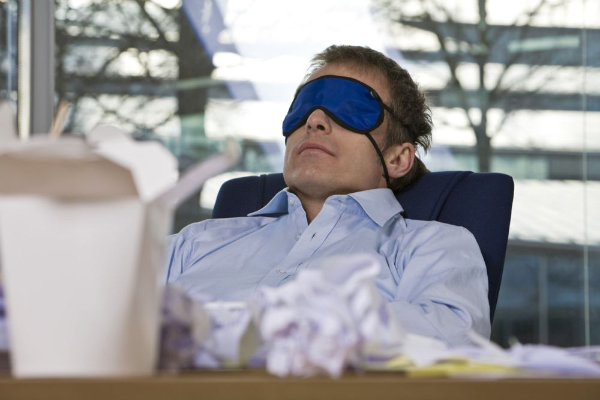Long intervals of hard work, physical exertion, and unhealthy lifestyle (poor sleep pattern, alcoholism, and drug addiction) are noted as the commonly known causes of tiredness or fatigue. A lay man could feel tired due to a recently suffered bereavement or upset, personal or family issues, emotional disturbance, work pressure, low spirits, confusion, etc.
Lack of a “good night” sleep is one of the major reasons which kindles tiredness in the body. An underlying medical problem such as anemia or viral disease such as glandular fever can extract huge amount of energy from the body, leaving the person tired for weeks. Common factors which contribute to tiredness are lack of regular exercise, unhealthy or insufficient diet, poor sexual lifestyle (frequent masturbation, unnatural sex), etc.

When should I see a doctor?
Schedule an appointment with your doctor if:
- Tiredness persists more than 2-3 weeks
- Other symptoms begin to appear
- Tiredness is often experienced for no apparent cause
- Complete sleep does not help anymore
- Tiredness hinders your daily chores

How will the doctor treat me?
Now that you’ve decided to meet a doctor, be open to the treatments proposed to you. Your doctor would most probably:
- Check your physical condition to identify the underlying medical condition(s) such as hypothyroidism (underactive thyroid gland), etc., if any
- Ask you questions or expect you to answer a questionnaire to detect whether or not you’re going through a psychological problem such as depression, anxiety, etc.
- Suggest you to have a blood test to diagnose other physical causes

What can I do by myself?
- Keep a check on your weight. Take measures to avoid being underweight or overweight. If you’re obese, you may have breathing problems during sleep such as obstructive sleep apnoea, which can leave you tired during the day
- Don’t catch up on your sleep via short sleep, power nap, or resting only on weekends
- Avoid working or staying up late at night and getting too busy to get enough sleep
- If your job is desk-bound, ensure that you exercise regularly or have a walk at least once or twice a day. Breathe in fresh air each day
- Never miss on your breakfast. Reduce the intake of red meat, eggs, cheese, and other fatty foods besides salt and sugar. Include rice, wholemeal bread, vegetables, pasta, and fruits in your daily diet
- Take a time off from your work or studies if you’re suffering from an illness such as flu or viral fever. Go easy on things when you resume your daily job after recovery
- Go for muscle relaxation exercises and deep breathing to eliminate stress adding to “burn out”. Reserve time for leisure activities
- Drink enough water everyday. Cut down on your caffeine intake

Should I power nap?
If you find yourself sleepy, drowsy, or nodding off during the day especially while driving, a power nap could be of great help. Before power napping, you should know that:
- Ideally, it lasts between 10-15 minutes. Stretching your nap to more than 15 minutes could leave you lethargic. If you extend it to 30 minutes, you could face problems in getting a sleep at night. Use an alarm clock, if needed
- It is not meant to make up for the lack of sleep if you’re facing a sleeping difficulty
- It should not be taken at any time during the day. Maintain the same time for your nap, so that your body gets accustomed to the routine
- Avoid napping before your computer or television screen and latter in the day
